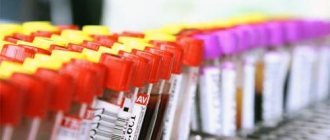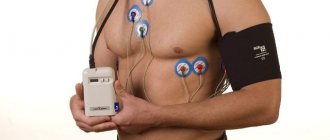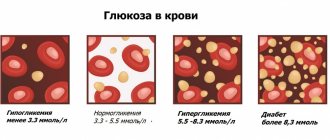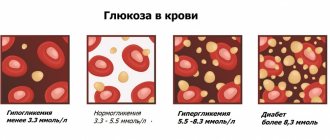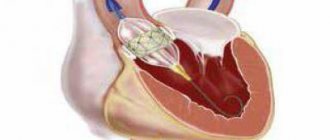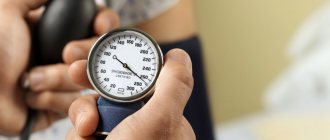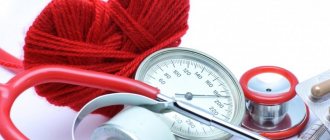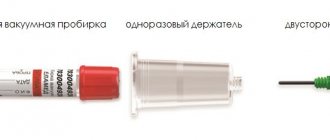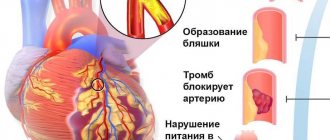Electrocardiography is a relatively inexpensive but valuable method of electrophysiological instrumental diagnostics in cardiology.
ECG is a technique for recording and studying the electric fields generated during the work of the heart. Electrocardiography is a relatively inexpensive but valuable method of electrophysiological instrumental diagnostics in cardiology.
The direct result of electrocardiography is an electrocardiogram (ECG), a graphical representation of the heart's function.
Application of ECG:
- the presence of acute or chronic myocardial damage (myocardial infarction, myocardial ischemia).
- determination of the frequency and regularity of heart contractions (pulse).
- detection of intracardiac conduction disorders (various blockades).
- screening method for coronary heart disease, including stress tests.
- gives an idea of the physical condition of the heart (left ventricular hypertrophy).
- may provide information about non-cardiac diseases such as pulmonary embolism.
- must be used when undergoing medical examination.
ECG: what the study will show and why it is needed
An ECG is a non-invasive study of the work of the heart muscle over a certain time. The procedure is carried out using special electrodes that are attached to the chest at certain points. They capture the subject's heart impulses, amplify them and transmit them to a galvanometer. These signals are recorded by a recording device in the form of jagged lines.
The height and duration of the teeth must correspond to the established norm. Any deviations indicate the development of heart problems. An experienced doctor is able to make the correct diagnosis based on the results of the cardiogram.
Cost of taking and interpreting an ECG
| Name of service | Price, rub.) |
| Initial appointment with a cardiologist | 2000 rub. |
| Repeated appointment with a cardiologist | 1500 rub. |
| Prescription of treatment (drawing up an individual treatment regimen) | 1500 - 3000 rub. |
| Taking and interpreting ECG | 2000 rub. |
| HOLTER HELL, HOLTER ECG (staging and interpretation) | 4500 rub. |
| Preparation of medical documents (extracts, certificates) | 1000 rub. |
| Registration of a sanatorium and resort card | 2000 rub. |
| Reception of a specialist with issuance of a sick leave certificate | 3000 rub. |
All our services and prices
What will the ECG show?
The study, as a safe and effective procedure, is prescribed to all people without exception. An ECG allows you to promptly identify cardiovascular pathologies and select the correct treatment.
A cardiogram makes it possible to determine the following features:
- heart rate;
- myocardial wall thickness;
- disturbance of potassium and magnesium metabolism;
- myocardial damage;
- quality of the pacemaker;
- source of pain in the heart area (caused by heart disease or other pathologies).
If the patient has been properly prepared for taking an ECG, the procedure allows you to diagnose:
- arrhythmia;
- tachycardia;
- cardiomyopathy;
- coronary heart disease;
- pericarditis;
- heart attack
Why do you need an electrocardiogram (ECG) of the heart?
An ECG makes it possible to obtain accurate information about the work of the heart and its condition during the procedure. The method is safe for health and completely painless, so it can be prescribed many times. This is especially valuable when the doctor needs to monitor the progress of the patient’s treatment.
An electrocardiogram allows you to:
- Determine the frequency of contractions.
- Identify conductivity flaws.
- Calculate the regularity of contractions.
- Diagnose the condition of the myocardium.
- Investigate possible electrolyte imbalances.
- Assess the general physical condition of the heart.
Thanks to an ECG, a cardiologist can identify both minor pathologies and serious dysfunctions of the organ. The results of the electrocardiogram are also invaluable in the treatment of non-cardiac pathologies (pulmonary embolism and others). A cardiogram helps to detect changes that occur in the heart: deviations of parameters from normal sizes, myocardial infarction and others.
Frequency of the study
During an ECG, sensors attached to the chest do not have any effect on the body. Their only task is to capture and transmit cardiac impulses. That is why an ECG cannot harm a person, even if the study is carried out daily.
Doctors consider the following frequency of ECG to be justified:
- Healthy population under 40 years of age . For such people, one study per year is enough.
- People with chronic illnesses . For patients suffering from cardiovascular diseases, an ECG schedule is prescribed by the attending physician. It is generally recommended that the survey be conducted quarterly.
- Workers associated with risk . Doctors advise people whose profession is associated with risk (for example, the Ministry of Emergency Situations) to undergo examination every six months.
- People who have crossed the 40-year mark . This population needs cardiac testing every 3-6 months. The frequency of an ECG depends on the state of health and is determined solely by the doctor.
An ECG is mandatory for pregnant women. Expectant mothers experience hormonal changes. These disturbances affect the blood circulation process. Therefore, the ECG cannot be ignored. The frequency of the study depends only on the woman’s condition and the course of pregnancy.
Coffee and Holter ECG (24-hour monitoring)
Sometimes a cardiogram is taken throughout the day by attaching sensors to the body. The patient leads his normal life, but records everything that happens. Every cup of coffee you drink, food you eat, stress, etc. This way, the doctor can notice exactly how the body reacts to various situations and food intake. In this case, be sure to discuss with your doctor that you will drink coffee: usually there is no problem, but there may be nuances of the examination, so they should be discussed in advance.
On the eve of the study
Patients who are prescribed an ECG must begin preparing for the examination the day before diagnosis with the following activities:
- Complete peace of mind . On the eve of the ECG, it is necessary to completely protect yourself from stressful situations if possible. Experiences and high anxiety can distort the results of a cardiogram.
- Full sleep . Before the study, be sure to get enough sleep. In a tired body, the heart functions in an enhanced mode.
- Quitting alcohol . It is strictly forbidden to drink alcohol before an ECG. Alcohol causes the blood to thicken, causing the heart to work much harder.
- Proper nutrition . You should not overload the body with too heavy dinner and breakfast before the ECG. It is advisable to exclude fatty and heavy foods from the diet. Otherwise, the body will devote all its reserves to digesting food, and the heart will be forced to work “for wear and tear.”
- Refusal of physical activity . In order for the cardiogram to show reliable results, doctors advise not to exercise on the eve of the ECG, and to do without exercise or jogging in the morning.
- Elimination of thermal procedures . It is not recommended to visit saunas or steam baths before taking an ECG. Doctors advise against taking a bath. Any thermal procedures can increase blood circulation and heart activity.
- Taking medications . The day before the examination, it is necessary to completely avoid taking medications, except those that are prescribed on a regular basis. The doctor must know about the latter.
Conclusions:
- It is better to avoid coffee before an ECG, as caffeine can distort the readings and the patient’s condition will be assessed incorrectly.
- Caffeine and ECG in combination do not harm the body, that is, if an electrocardiogram is taken for emergency reasons, this can be done.
- During daily Holter monitoring, you can usually drink coffee, but it is advisable to consult a doctor.
- Tell your doctor that you drank coffee before the examination so that he can somehow compare the results with this fact.
- It is recommended to choose natural coffee rather than instant coffee, and preferably 3-5 hours before the examination.
On the day of the ECG
Proper preparation for taking an ECG includes the following recommendations:
- Giving up coffee . On the day of the study, it is advisable to exclude caffeine-containing drinks from your diet. This applies to strong coffee, tea, and some types of soda. It is strictly forbidden to take energy drinks.
- Avoiding the use of creams . Before the procedure, you should not apply greasy lotions or creams to your chest. This cosmetics can form a film on the surface of the body, with which it is quite difficult for sensors to contact.
- To give up smoking . 2-3 hours before the ECG you need to completely stop smoking. Nicotine causes severe vasoconstriction, leading to excessive heart activity.
- The right clothes . Sensors that record heart impulses are placed in the chest area, as well as on the wrists and calves. These areas of the body must be exposed before the procedure. It is advisable to choose clothing that will allow you to correctly install the electrodes and will not put pressure on your body.
Cardiologists advise arriving 15-20 minutes before the ECG. It is necessary to sit under the office and breathe deeply to restore the heart rhythm, increased by walking.
Preparing for an ECG
An ECG is an electrocardiogram of the heart. This is a very informative examination to assess the condition of the heart.
Electrodes are attached to certain areas of the body, the ECG is recorded on a special tape, on which electrical impulses are recorded in the form of curves, straight and jagged lines. A cardiologist, functionalist, therapist, or emergency physician is required to see any abnormalities on the electrocardiogram and evaluate acute cardiac pathology.
Often the patient asks the doctor questions: isn’t an ECG and an ultrasound of the heart (EchoCS) the same thing, when to do an ECG and when to do an EchoCS, what does an ECG show and what does an EchoCS? ECG, unlike EchoCS, does not show morphological and structural changes.
WHAT DOES THE ECG SHOW?
- rhythm and heart rate;
- hypertrophy of the walls of the left ventricle;
- enlargement of the cavities of the heart;
- electrolyte changes in the myocardium;
- circulatory disorders in the heart;
- regularity of the pacemaker (electrocardiostimulator).
Thus, many heart diseases, such as arrhythmias, tachycardias, blockades, ischemia, myocardial infarction, myocarditis, hypertension and many other cardiac pathologies, can be recognized by ECG recordings.
HOW TO PREPARE FOR ECG?
Although an ECG is a simple procedure, preparation for the study is necessary so that the doctor does not receive a false result and send the patient for additional examinations. To obtain the most reliable result, preparation is necessary the day before and on the day of the study.
PREPARATION FOR ECG BEFORE THE EXAMINATION:
MEDICINES. If the patient does not take medications on a regular basis, they must be discontinued 2 days before the procedure. If it is not possible to discontinue the drugs, you must inform the ECG specialist.
ALCOHOL. The day before, it is recommended to stop drinking alcohol, since alcohol affects the composition of the blood and the functioning of the heart, and the ECG readings may be distorted and the film may reveal arrhythmia, tachycardia, electrolyte disturbances in the myocardium, and, often, ischemia.
DREAM. If the body is tired, various abnormalities may be detected on the electrocardiogram. Therefore, 5-7 days before the examination, it is recommended to get enough sleep - at least 7-8 hours per night.
NUTRITION. It is undesirable to eat fatty, spicy foods on the eve of an ECG, and it is advisable to make breakfast as light as possible.
SPORT. It is advisable to refrain from physical exercise 2 days before the examination.
EMOTIONAL CALM. 2-3 days before the ECG is taken, it is advisable to find peace of mind - not to be nervous. Stress, psycho-emotional instability, depression, and anxiety can distort the ECG results.
THERMAL PROCEDURES. It is advisable to avoid visiting a solarium, bathhouse, or sauna for several days, as this can also affect the distortion of ECG results.
PREPARATION FOR ECG ON THE DAY OF EXAMINATION:
LIGHT BREAKFAST
ENERGY. It is necessary to exclude tea and coffee.
CLOTH. To avoid problems with connecting sensors, it is recommended to wear light clothing that is easy to remove, roll up the sleeves or the bottom of the trousers.
SMOKING. It is advisable not to smoke 3 hours before the examination, since nicotine leads to vasospasm, and this, in turn, affects the functioning of the heart, activating the work of the myocardium muscle.
CREAMS AND LOTIONS. On the day of the examination, you should not apply greasy products, because creams and lotions interfere with the attachment of sensors to the body for recording ECG.
IN WHAT CASES IS ECG PRESCRIBED?
- fainting;
- dyspnea;
- pain in the chest, neck, back;
- swelling of the legs;
- pregnancy;
- preparation for surgery;
- body check;
- trip to a sanatorium;
- sport competitions;
- as a preventive measure once a year.
SYMPTOMS FOR MANDATORY CONSULTATION TO A CARDIOLOGIST:
Proper functioning of the heart is the key to health!
Any disturbance in the functioning of the heart causes failure in all systems of our body. Nausea, tachycardia, weakness, dizziness, and neuroses appear. Preventing heart disease requires a more careful attitude to your health.
The heart is a very reliable organ; it takes a long time to warn a person about problems. The sooner we see a cardiologist due to heart problems, the better.
- A sharp decrease or increase in blood pressure.
Suddenly there is a headache, malaise, nausea, weakness, lightheadedness, and lightheadedness.
- Lip cyanosis (bluish color).
This is a sign of improper functioning of the lungs, there is not enough oxygen saturation of the blood, or improper functioning of the heart. It pumps blood weakly. Oxygenated blood, which has a bright color, does not enter the capillaries of the lips, and dark blood, saturated with carbon dioxide, does not drain well.
- Swelling of the legs. There are many reasons for swelling of the legs. One of the main reasons is heart problems. Edema often appears with cardiomyopathy, heart failure, aortic aneurysm, various heart defects, and after a myocardial infarction.
- Incorrect pulse. Normally, a person’s pulse is considered no higher than 90 and no lower than 60 beats per minute. With a low pulse, there can be fainting, even cardiac arrest. Due to insufficient oxygen supply to the brain, oxygen starvation occurs. Due to an excessively rapid pulse, there may be cerebral hemorrhage, arrhythmic shock, and much more.
- Interruptions in the heart. If the heart rhythm is abnormal, weakness, ripples in the eyes, and dizziness appear. This indicates direct heart problems.
- Fainting. Presyncope. They can be a consequence of a stuffy room, diabetes mellitus, or accompany a stroke, myocardial infarction, cardiac arrhythmia until it stops completely.
- Chest pain. This is a signal about the destruction of the body. Malaise after physical activity, aching chest pain may indicate a pre-infarction condition. The pain radiates to the back, neck, and left arm.
For all of the above symptoms and complaints, it is necessary to do an ECG and, if possible, seek qualified help from a specialist, as well as perform all procedures for treatment.
Try to get rid of bad habits, adjust your diet, reduce your excess weight, increase your physical activity, try to avoid stressful situations in life, manage your attitude towards these situations.
Be healthy!
Sign up for functional diagnostics
Functional diagnostics doctor - Andrienko Olga Leonidovna
You can make an appointment by calling (391) 205−00−48 or through your personal account
Indications for the procedure
ECG is a fairly popular procedure that is prescribed to everyone, from the youngest patients to adults. The reasons for the study can be either a routine examination or complaints of ailments. The procedure is required:
- for admission to first grade;
- passing the driver's license exam;
- teenagers who are undergoing changes in their body;
- admission to secondary and higher educational institutions after school.
ECG is also indicated for patients who have the following health problems:
Read also: Jusay, what is useful in it
- shortness of breath while walking or other activities, as well as at rest;
- high blood pressure;
- pain in the chest, neck, back and abdomen;
- fainting;
- swelling of the limbs;
- general weakness;
- heart murmurs and so on.
An ECG is also done before surgery, when registering for a sanatorium, and for issuing medical documents. A cardiogram should be done every year for people over 40 years of age.
